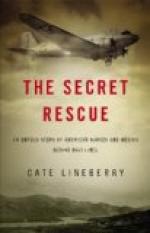Sydney shook his head gravely.
“I wouldn’t care to go through it again,” he answered. “I had all kinds of heart disease before the first half was over, and after that I was in a sort of daze; didn’t know really whether it was football or Friday-night lectures.”
“You ought to have been at table to-night, chum,” said Paul. “We made Rome howl. Mills made a speech, and so did Jones and ‘Baldy,’ and—oh, every one. It was fine!”
“And they cheered a fellow named Fletcher for nearly five minutes,” added Sydney. “And—”
“Hear ’em!” Cowan interrupted. From the direction of the yard came a long volley of cheers for Erskine. Dinner was over and the fellows were ready for the celebration; they were warming up.
“Great times to-night,” said Paul happily. “I wish you were going out to the field with us, Neil.”
“Maybe I will.”
“If you try it I’ll strap you down,” replied Paul indignantly. “By the way, Mills told me to announce his coming. He’s terribly tickled, is Mills, although he doesn’t say very much.”
“He’s still wondering how you went stale before the game and then played the way you did,” said Sydney. “However, I didn’t say anything.” He caught himself up and glanced doubtfully toward Cowan. “I don’t know whether it’s a secret?” He appealed to Neil, who was frowning across at him.
“What’s a secret?” demanded Paul.
“Don’t mind me,” said Cowan. “It may be a secret, but I guessed it long ago, didn’t I, Paul?”
“What in thunder are you all talking about?” asked that youth, staring inquiringly from one to another. Sydney saw that he had touched on forbidden ground and now looked elaborately ignorant.
“Oh, nothing, Paul,” answered Neil. “When are you all going out to the field?”
“But there is something,” his chum protested warmly. “Now out with it. What is it, Cowan? What did you guess?”
“Why, about Fletcher going stale so that you could get into the game,” answered Cowan, apparently ignorant of Neil’s wrathful grimaces. “I guessed right away. Why—”
“Oh, shut up, won’t you?” Neil entreated. “Don’t mind them, Paul; they’re crazy. Sydney, you’re an ass, if you only knew it.”
“But I thought he knew—” began Sydney.
“No, I didn’t know,” said Paul, quietly, his eyes on Neil’s averted face. “I—I must have been blind. It’s plain enough now, of course. If I had known I wouldn’t have taken the place.”
“You’re all a set of idiots,” muttered Neil.
“I’m sorry I said anything,” said Sydney, genuinely distressed.
“I’m glad,” said Paul. “I’m such a selfish brute that I can’t see half an inch before my nose. Chum, all I’ve got to say—”
“Shut up,” cried Neil. “Listen, fellows, they’re marching across the common. Some one help me to the window. I want to see.”
Paul strode to his side, and putting an arm under his shoulders lifted him to his feet. Sydney lowered the gas and the four crowded to the window. Across the common, a long dark column in the starlight, tramped all Erskine, and at the head marched the band.




